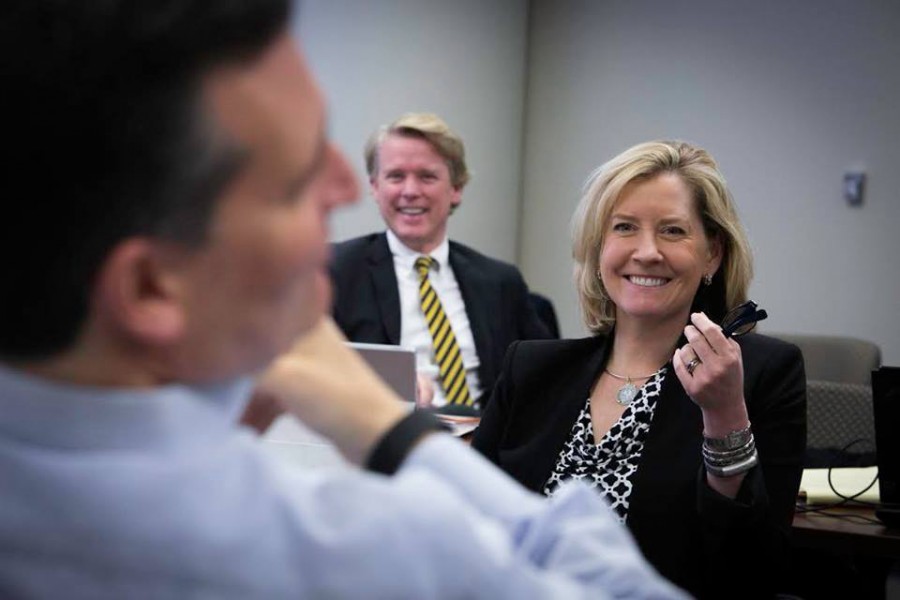We conducted an interview with former federal prosecutor Andrew C. McCarthy, author of the new book, “Faithless Execution: Building the Political Case for Obama’s Impeachment,” in which we covered a number of controversial issues, including the case for impeaching President Obama, the Bowe Bergdahl terrorist exchange, Benghazi and Hillary Clinton, and the government’s efforts to chill free speech.
The below reflects a transcript of the interview, conducted via phone, which is slightly modified for clarity and links.
For more content like this, please give Blaze Books a follow on Facebook andTwitter.
Who is “Faithless Execution” intended for, and why should both President Obama’s critics and proponents pick it up?
McCarthy: The book is intended for the public broadly, because I really thought and continue to think that there is a lot of misinformation and misunderstanding generally about what the standards are for removal of a president from power, what the wages are of having a lawless president, and what the arsenal is that Congress has to respond to it. It seems that there’s a lot of frustration on the part of people with the fact that the president doesn’t seem to be bound by the law, or certainly doesn’t take himself to be bound by the law, and people seem very frustrated that there doesn’t seem to be much that can be done about it. And point of fact, there’s a lot that can be done about it, but there is a lot of ignorance and misinformation out there about what the remedies are. So, what I hope the book will be is a corrective for people in general about what ways presidential lawlessness threatens the Republic, and what responses the Framers put in place that we could use to combat it.
The central point of your book hinges on the notion that impeachment is both a legal but more importantly political remedy. Thus, despite the merits of the case against President Obama, all is moot without their being broad political support for such proceedings. Can you expand on the thesis, explain why impeachment is primarily a political remedy, and provide a little bit of the history behind impeachment itself?
McCarthy: Impeachment has two components. There’s a legal component to it in the sense that the Constitution has a threshold or a standard that applies to presidential malfeasance or maladministration – I guess maladministration is a better term because the Framers weren’t just concerned about corrupt behavior – they were concerned about a president who was in over his head so gross ineptitude even if it was well-meaning was something they were very concerned about simply because the presidency that they created was so powerful, and had so much potential to harm the republic that they were concerned about having someone who was unsuited in that position – whether it was unsuited because of corruption or simply because of reasons of incompetence. They had a straightforward legal test for what would be required to remove a president. Treason and bribery are straightforward enough – they’re actual crimes that have a lot of history and people understand them. The thing that people generally have some confusion about are high crimes and misdemeanors, and maybe it’s because of the phrase itself because it mentions “crimes and misdemeanors,” so people naturally think of penal statutes where Congress has enacted laws that qualify as felony criminal offenses or misdemeanor offenses. And that’s not what high crimes and misdemeanors is really about at all.
What the framers discussed when they adopted this standard — and it was very much on their mind because they were all men of the world, they were all men who followed current events, many of them were steeped in British law — at the time the Constitution was being debated in the Convention in Philadelphia in 1787, the impeachment trial of Warren Hastings was ongoing in England, where Edmund Burke had led the effort in Parliament to have him impeached on the basis of high crimes and misdemeanors, so it was a phrase, and a term that was very well known to the Framers. And what it really means is, as Hamilton put it, political wrongs, or the offenses of public officials in whom high public trust is vested. So, it doesn’t have to be statutory offenses, and in many ways it’s easier to understand it in terms of the military justice system rather than the civilian penal justice system because it embraces concepts like dereliction of duty, conduct unbecoming of an officer, and the like. It really is about a breach of trust and there is no more trust in our system than what’s reposed in the president, who by the way is the only one in the government who constitutionally is required to take an oath of office of the kind that’s spelled out in the constitution, which requires him to swear to preserve, protect, and defend the Constitution. The failure to do that, more than any statutory offense, was something the Framers were much more concerned about.
So the legal test of high crimes and misdemeanors is pretty straightforward. If you have situations where the president violates the trust of the American people by undermining our system and its checks and balances, those would qualify as high crimes and misdemeanors. A president who is dishonest with the public or dishonest in reporting important matters of foreign affairs to Congress and the like would be guilty of high crimes and misdemeanors. A president who is derelict in his duties as commander-in-chief is guilty of high crimes and misdemeanors even though there is no penal offense in the federal code that would match up with that. But the Framers were also very concerned that impeachment not be the result of partisan hackery, trivial offenses, or matters of factions (so the president’s part of one faction, Congress is controlled by another, and they can impeach him just for those political and power reasons).
Read more at TheBlaze…





